Journal Boards
Editor in Chief

Deputy Editor in Chief

Sub-publication Editorial Board



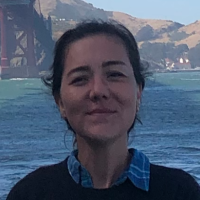

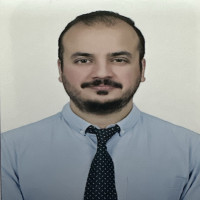
Co Editors


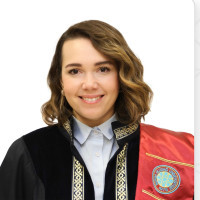




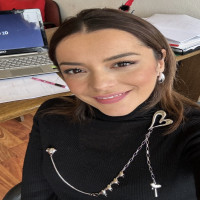

Language Editor
Editorial Board / From Other Universities
Sadık C. Artunç, FASLA, FCELA, PLA, PE is a professor who has recently returned to his fulltime faculty position after serving seventeen years as the Head of Department of Landscape Architecture at Mississippi State University (MSU) (January 2007 – December 2023). Prior to his tenure at MSU, he taught at the Robert S. Reich School of Landscape Architecture of Louisiana State University between 2007 - 1981. Sadık has dedicated his academic career to educating students in innovative, humanistic, and environmentally sensitive planning, design, and implementation and to serving as an enthusiastic advocate for the profession and education of professionals. With the highest standards of professional ethics, he has been a successful and very consistent role model for his students and colleagues.
A native of Turkey, Sadık is a naturalized citizen of the U.S.A. He has a B.S. and M.S. in forestry and forest engineering from the University of Istanbul, and a M.L.A. from the University of Michigan. He is a registered landscape architect in the U.S.A. and a registered forester and forest engineer in Turkey. His teaching involves design implementation and construction, site planning and design, and regional planning and design. His professional consulting involves large-scale planning and design with a focus mostly on recreation and tourism, resource planning, and design implementation/construction. He has worked on projects in the United States, Guatemala, Nicaragua, and Turkey. Prior to arriving in the United States in 1975, he worked in Turkey as a forester and forest engineer for the Ministry of Forestry, and later as a recreation planner in the Central Planning Office of the National Parks Service and, finally, as the planning director of the Uludağ (Olympus) National Park for the Department of National Parks in Bursa, Turkey.
Sadık has been an active member of various professional organizations and societies since 1981. Always a tireless and enthusiastic promoter of the profession of landscape architecture and ASLA, Sadık served at various leadership capacities and levels: the Louisiana Chapter president (1991); chapter trustee (1996–2001); and finally, as the national vice-president of membership (2002–2004), during which time ASLA membership had a tremendous growth in numbers. Sadık was nominated and ran for the office of President of ASLA in 2005. Sadık was inducted into the ASLA Council of Fellows in 2000. Most recently, he served as the President-elect, President, and Past-President of the CELA. During his three-year service which has been impacted by the COVID, the annual conference was cancelled in 2020, held the first ever virtual annual conference was held in 2021, and the first face-to-face and virtual (hybrid) conference was held in 2022. Also, during his term, the CELA Board of Directors enacted and endowed the Charles Fountain Scholarship for minority students studying landscape architecture.
His teaching, scholarly, and professional activities through ASLA, CELA, CLARB, LAAB, ECLAS, IFLA, and Turkish Society of Landscape Architecture (PEMAT and PEMDER) have contributed to an increased visibility and awareness of the profession. He has over one fifty hundred publications to his credit in refereed journals, proceedings of professional conferences, national registration exams, magazines, and book chapters. He has received twenty-one academic and professional awards during his academic and professional career from his students, his colleagues, and his peers.
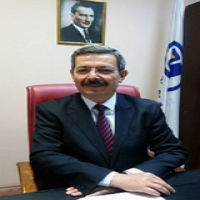
Dr. Beatriz Duguy Pedra, Full Professor at University of Barcelona, has a PhD in Biology, an Agronomy Engineer’s Degree and a Master of Science in Environmental Planning. She is a member of the research group “Forest and Stream Ecological Links: Watershed Management and Restoration-FORESTREAM” funded by the Catalan Government. Her research fields are fire ecology, plant-soil relationships, restoration ecology (in ecosystems affected by forest fires) and the use of modelling and geospatial technologies for guiding post-fire restoration. She coordinates the “Restoration Ecology” Bachelor’s Degree course and 2 Master’s Degree courses: “Wildfires and Forest Restoration”, “Remote Sensing and GIS: agro-forestry applications”.

Giulia Maesano is a researcher at Alma Mater Studiorum - University of Bologna, Department of Agricultural and Food Sciences and Technologies, where she teaches "Research methods for horticultural business" in the Master's Degree in International Horticultural Science.
She obtained the National Scientific Qualification for the role of Associate Professor in the Competition Sector 07/A1 - Agricultural Economics and Valuation.
She was a research fellow at Alma Mater Studiorum - University of Bologna (2022), the University of Verona (2021) and the University of Catania (2020).
She served at the Council for Agricultural Research and Analysis for Agricultural Economics, Research Center for Policies and Bioeconomy in Rome (2019).
She obtained the International PhD in "Agriculture, food and environmental science" (2019) at the University of Catania. During her PhD, she was a visiting scholar at the University of California Davis, Department of Agricultural and Resource Economics (2018) and the Norwegian University of Life science, School of Economics and Business (2017).
She graduated in Agricultural Sciences and Technologies at the University of Catania (2015) with a grade of 110/110 cum laude, with mention.
She has participated in numerous national and international research programs and has been a speaker at conferences and conventions of national and international importance. She regularly serves as a referee for scientific journals in the sector.
She is a member of scientific societies, such as the Italian Society of Agricultural Economics - SIDEA, the Italian Society of Agri-food Economics - SIEA, the Italian Association of Agricultural and Applied Economics - AIEAA, the Agricultural Economics Society - AES, and the American Association of Wine Economists AAWE. His current research interests include consumer behavior, adoption of innovations in agriculture, supply chain management, and agri-food and wine marketing.
Ebru Özer, FASLA, is a professor and chair at FIU Landscape Architecture + Environmental and Urban Design. Her research focuses on landscape performance, green infrastructure, urban mobility, and gender equity, supported by grants from the U.S. Department of Education, the U.S. EPA, and the LAF. Özer co-authored the book "Best Practices in Sustainable Building Design" (2012) and has been published in Landscape Journal, City and Environment Interactions, Landscape Architecture Magazine, and Urban Ecosystems. She served as the national Vice President of Education at the American Society of Landscape Architects (ASLA) and the treasurer of the Council of Educators in Landscape Architecture (CELA). Özer collaborates with local non-profits, government organizations, and community members to enhance urban environments through landscape architecture. She volunteers in career discovery initiatives at K-12 schools and leads projects on greening schoolyards. Özer holds an MLA from Louisiana State University, a BArch from Dokuz Eylül University, a Diploma in Physics from Ege University, and is a PhD ABD in Civil Engineering.
Dr. Marco A. Juárez-Estrada was born in Santa María Asunción Tlaxiaco, Oaxaca, Mexico, where he completed his basic schooling. As a child, he developed a strong interest in rabbit breeding. He began raising rabbits and quickly built his own cages as they multiplied. Interestingly, he didn’t euthanize them for meat production, a unique approach for a young enthusiast. Later in life, he became a broiler farm owner, fascinated by how quickly broiler chickens grow and their strong physical development. He was amazed by how the small yellow chicks with spindly legs transformed into fully-grown adult broilers in such a short period of time. Dr. marco A. Juárez-Estrada completed his high school education in Toluca City, Mexico. Now, he is 56 years old, he has spent the last 27 years focusing on avian physiology, incubation, immunology, and methods for controlling avian coccidiosis. His research has contributed to publish several papers on avian physiology incubation and the control and prevention of coccidial outbreaks in the field.